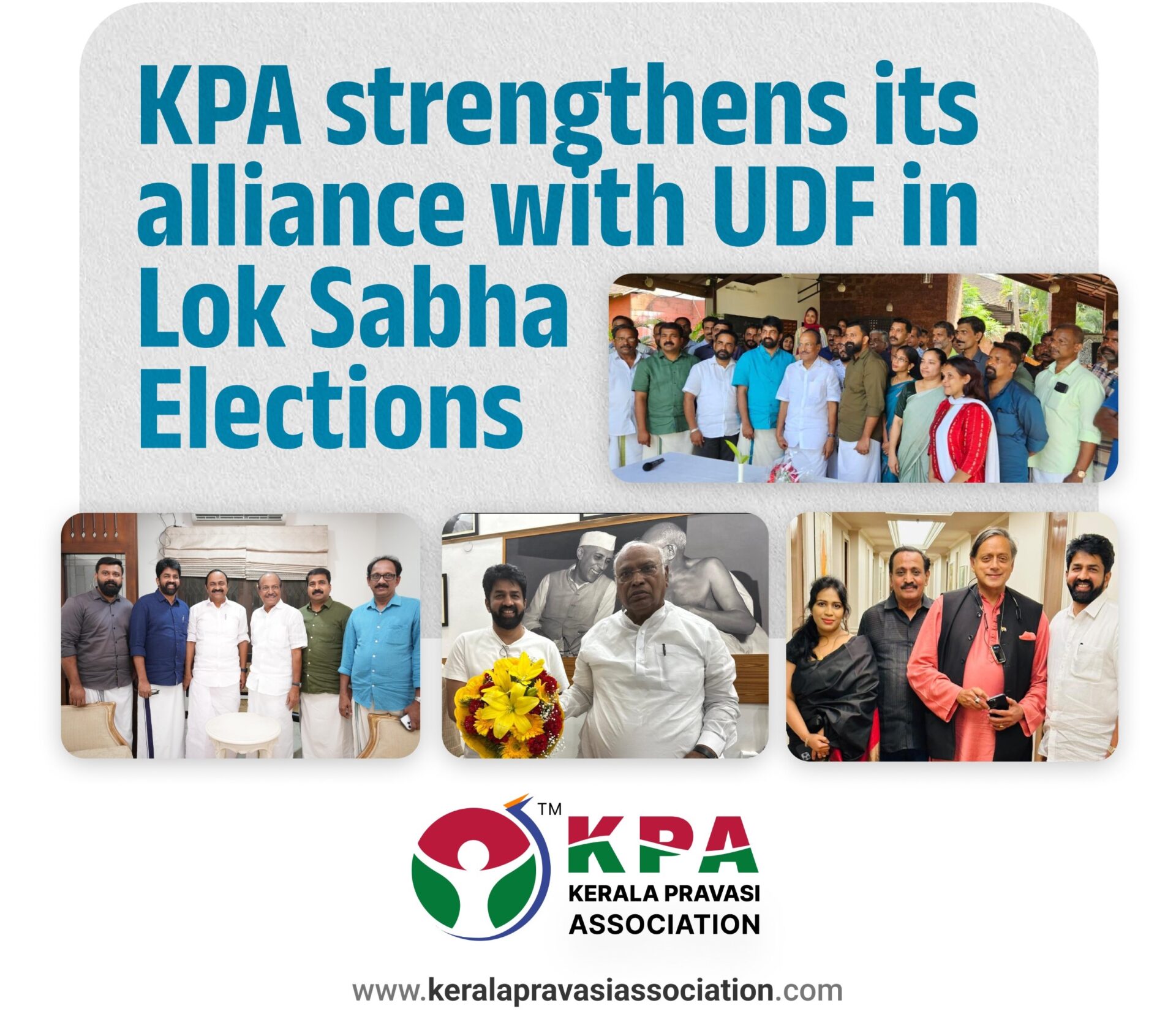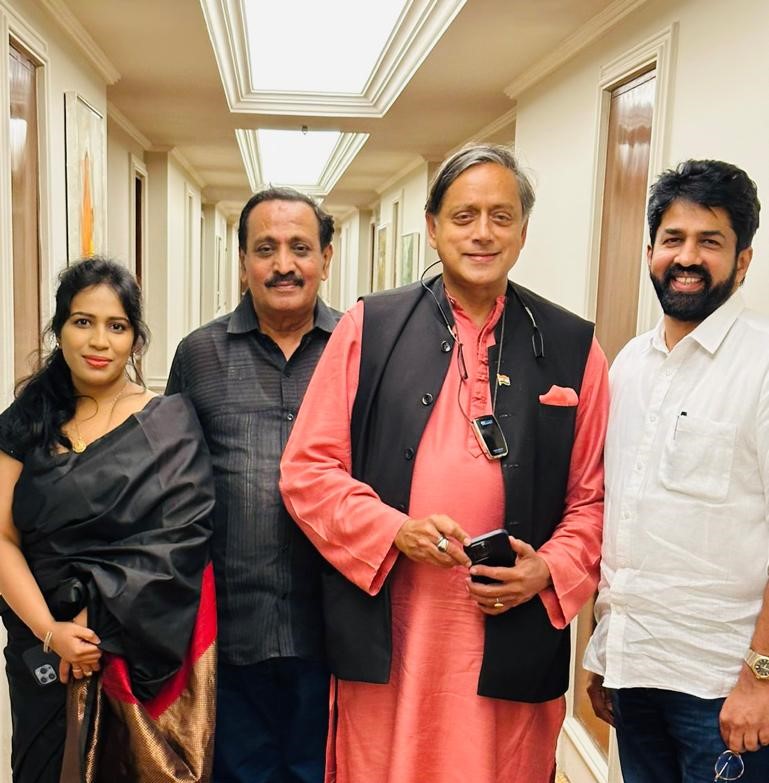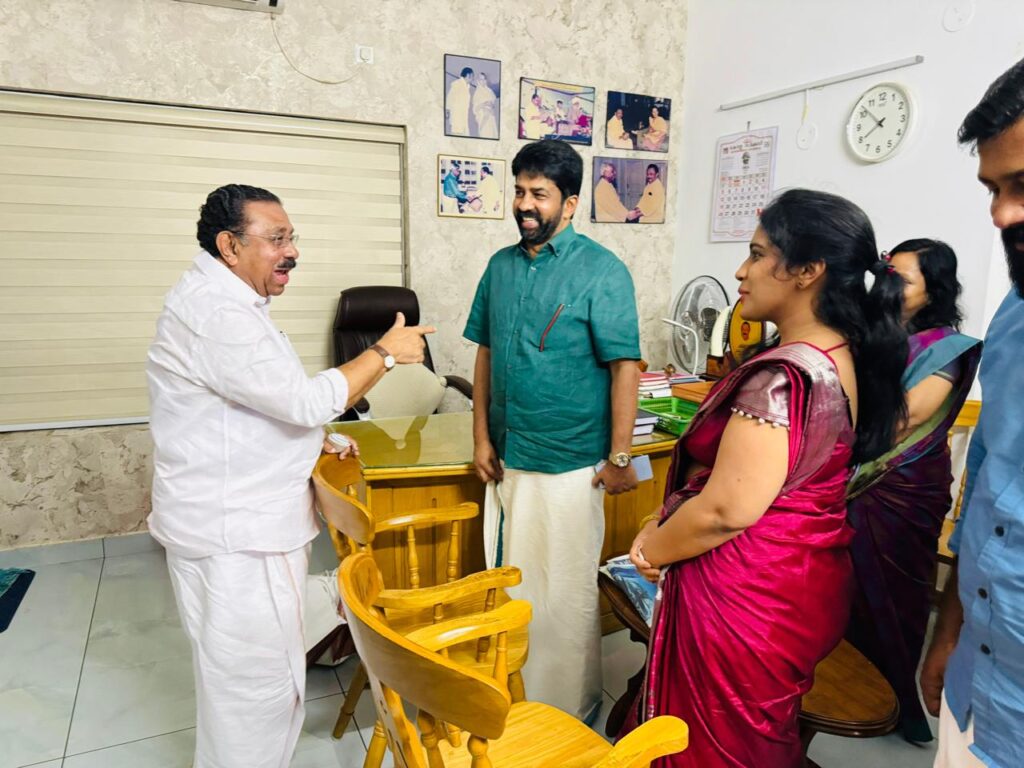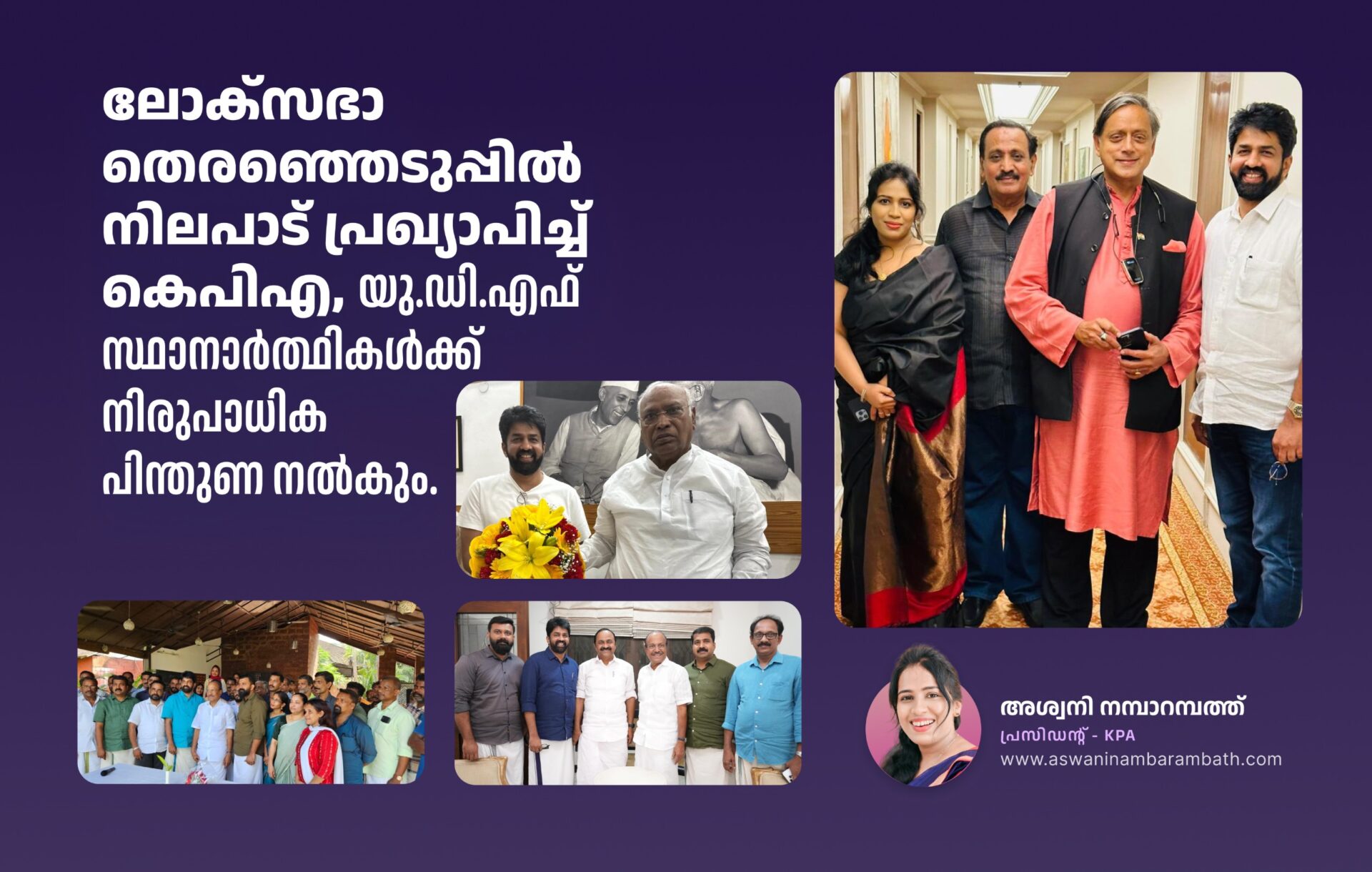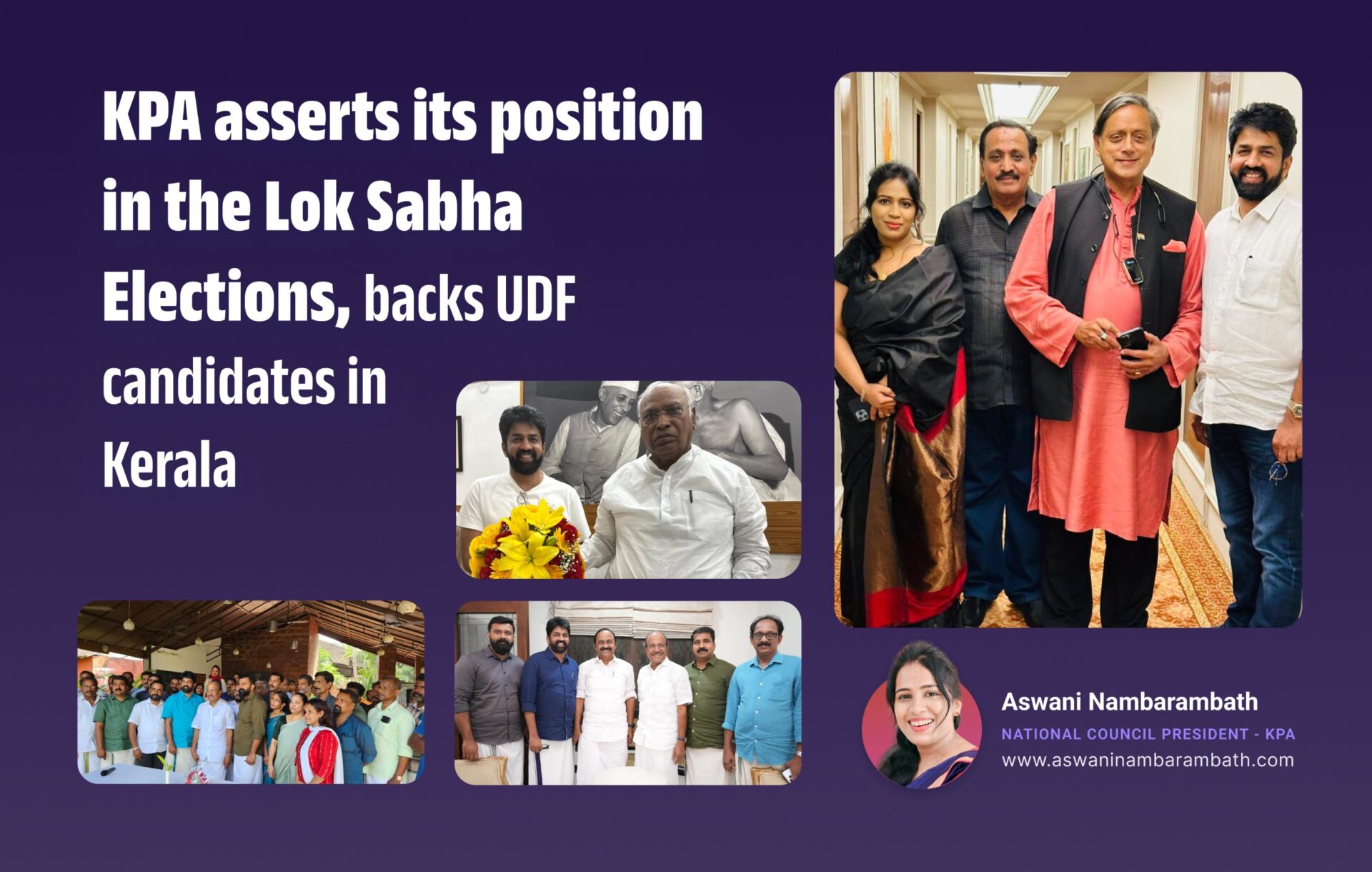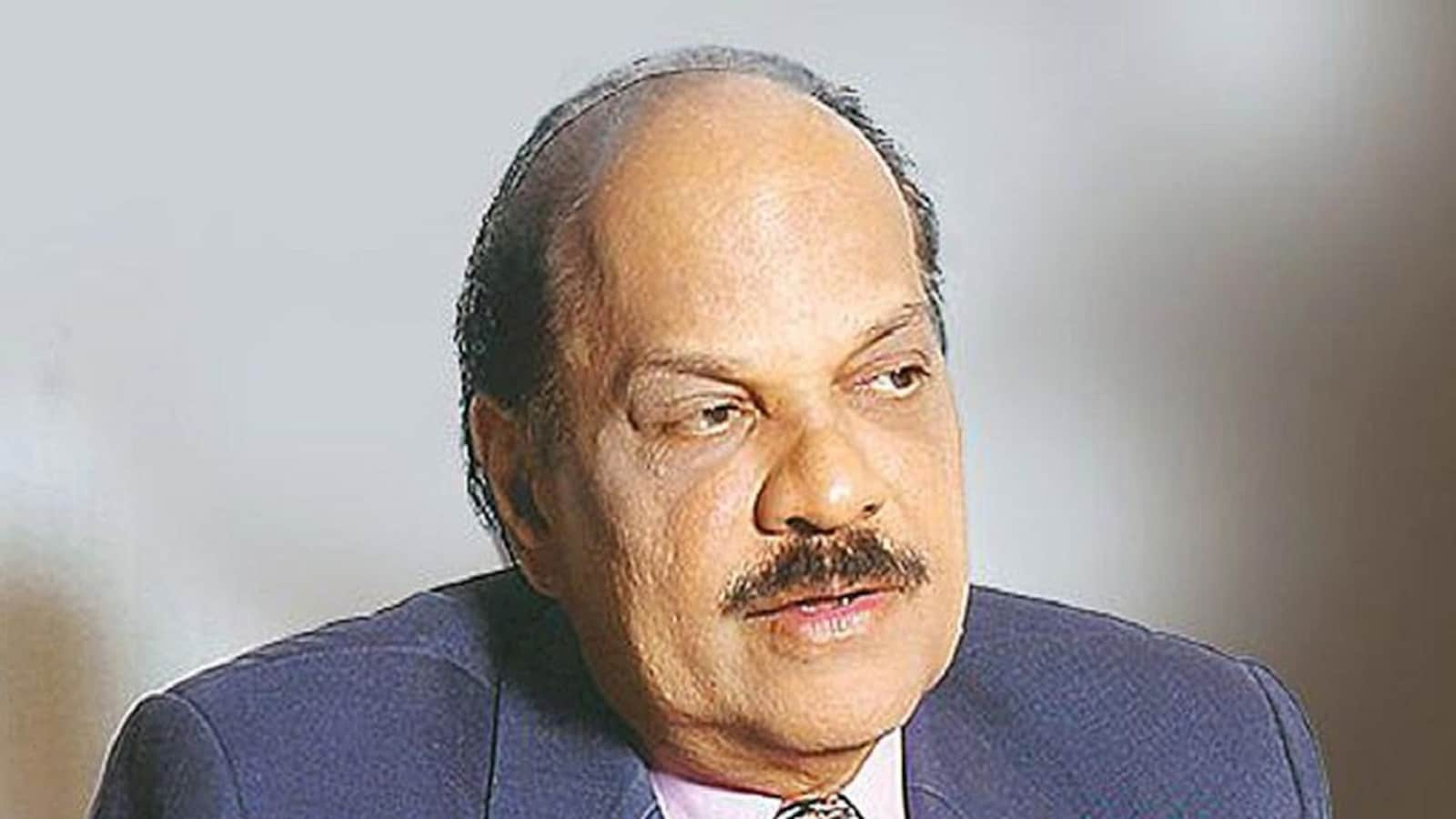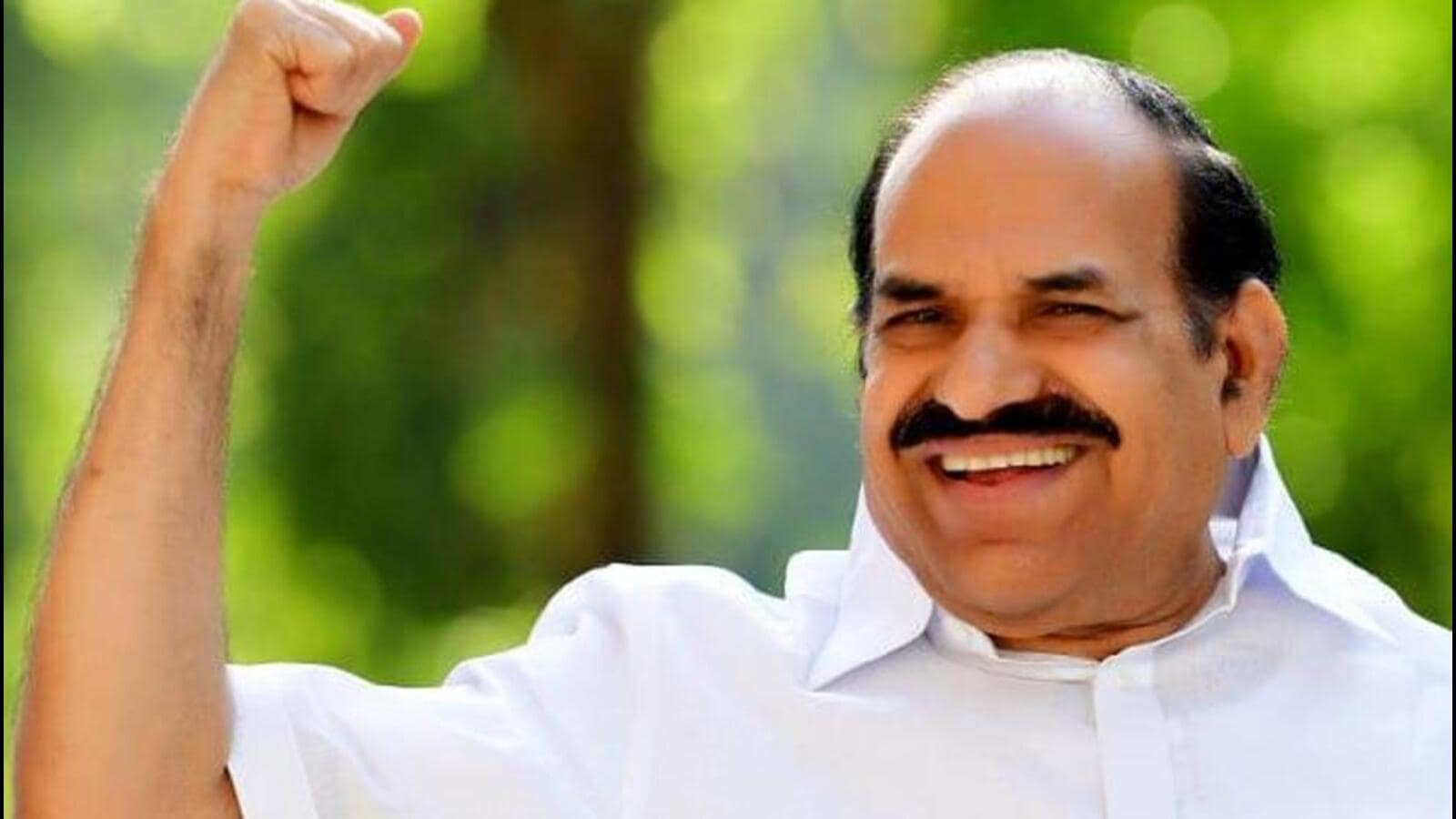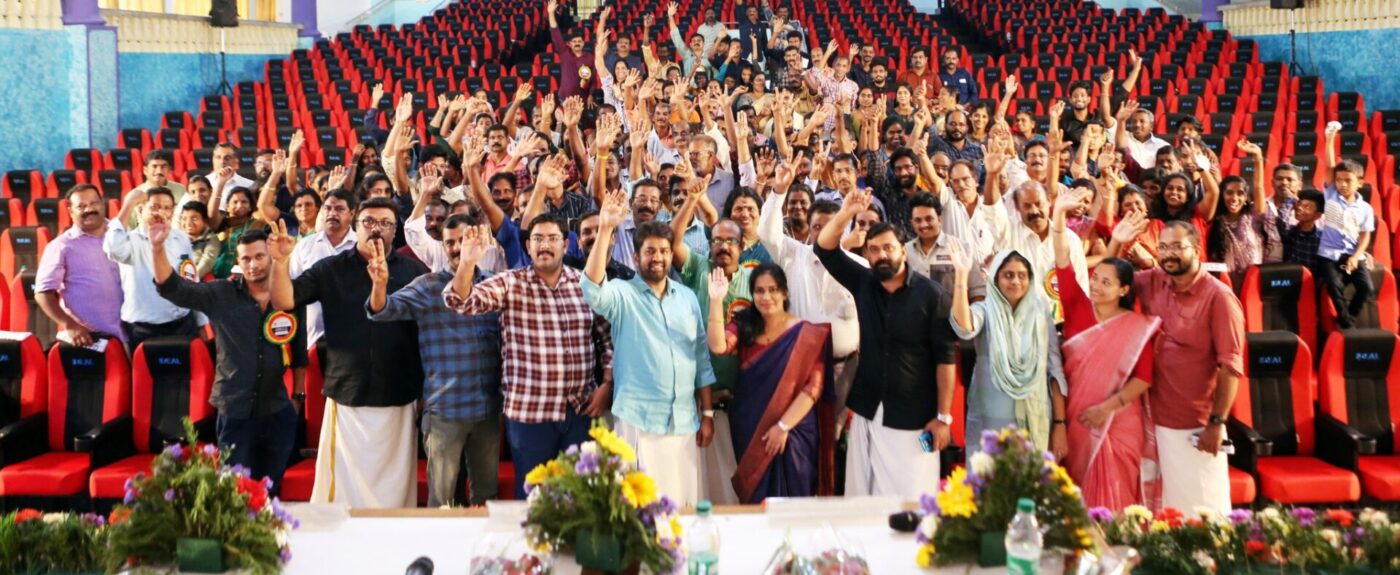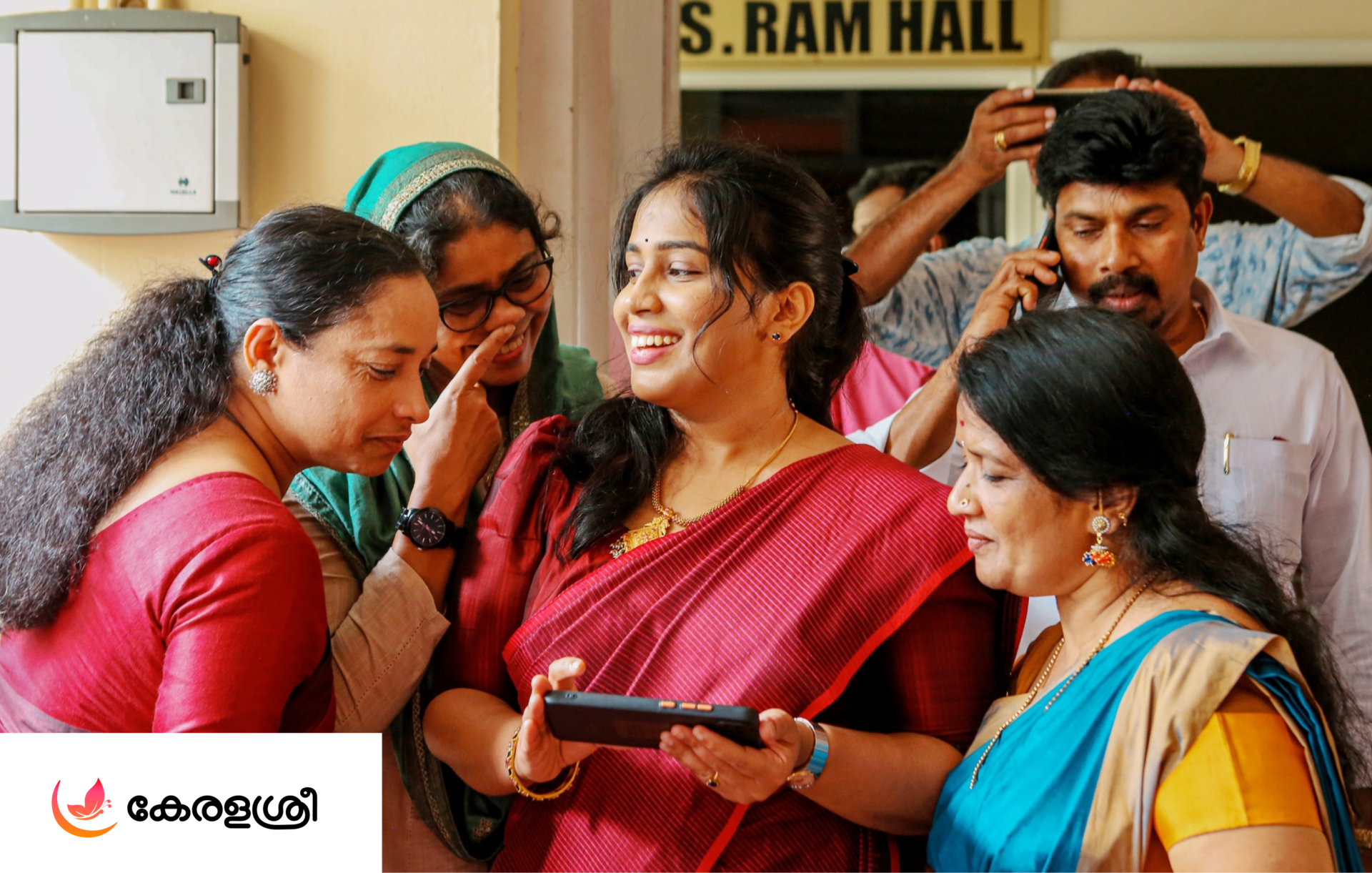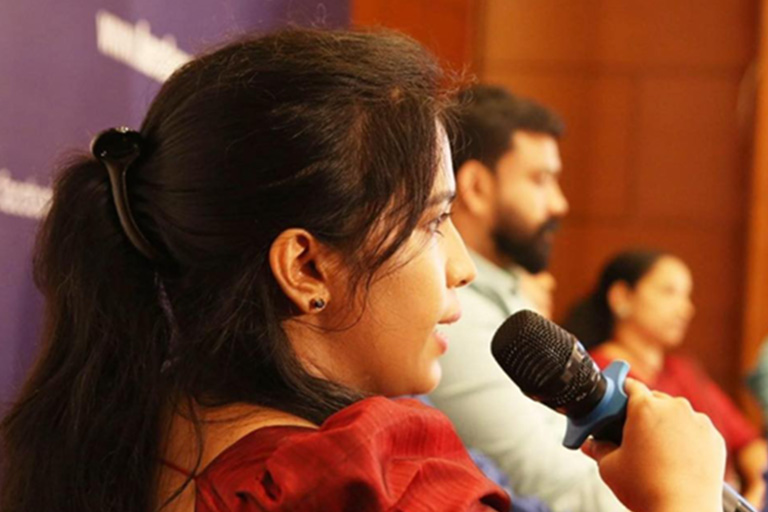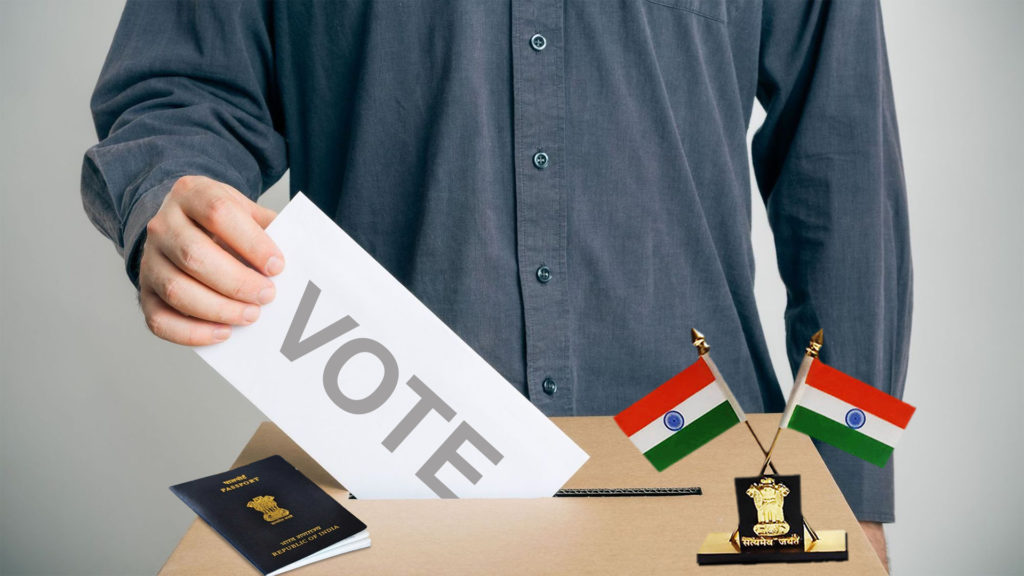നാട് വർഗീയമായി വിഭജിക്കപ്പെടുമ്പോൾ രാജ്യത്തിന്റെ വളർച്ചയും പുരോഗതിയും മുരടിക്കും. വർഗീയതയും മതരാഷ്ട്ര ചിന്തകളും നാടിന്റെ ഐക്യത്തെ തളർത്തും. വ്യവസായങ്ങളും തൊഴിലവസരങ്ങളും കുറയും. മാറുന്ന കാലത്തെ മനസിലാക്കുന്ന ഭരണകൂടങ്ങളാണ് നമുക്ക് വേണ്ടത്. അന്ധവിശ്വാസങ്ങളുടെ പ്രചാരകർ നാടിനെ പിന്നോട്ടടിപ്പിക്കുകയാണ്. ശാസ്ത്ര – സാങ്കേതിക വളർച്ചകളിൽ ഇന്ത്യയും മറ്റ് രാജ്യങ്ങൾക്ക് ഒപ്പം വളരണം. ജവഹർലാൽ നെഹ്റുവിന്റെ കാഴ്ചപ്പാട് തുടരുന്ന സർക്കാരുകൾക്കേ ഭാവി ഇന്ത്യയെ വാർത്തെടുക്കാൻ കഴിയൂ. നമ്മുടെ ഭരണഘടന ഉറപ്പാക്കുന്ന മൗലികാവകാശങ്ങൾ ലംഘിക്കപ്പെടുന്ന സ്ഥിതിക്ക് മാറ്റം വരണം. അഭിപ്രായ സ്വാതന്ത്ര്യം ഉറപ്പുവരുത്താൻ കഴിയണം. കടുത്ത ആശങ്കയിലൂടെ കടന്നുപോവുകയാണ് രാജ്യത്തെ മതന്യൂനപക്ഷങ്ങൾ. ന്യൂനപക്ഷ സംരക്ഷണത്തിൽ ഭരണഘടനപരമായ ഉത്തരവാദിത്തം നിറവേറ്റുന്ന ഒരു സർക്കാർ അധികാരത്തിലെത്തേണ്ടത് വർത്തമാന ഇന്ത്യയുടെ ആവശ്യമാണ്. വിലക്കയറ്റവും തൊഴിലില്ലായ്മയും വിഭജനവും നാടിനെ തകർക്കുകയാണ്. പാചകവാതക വില ഇത്രയേറെ വർധിച്ച മറ്റൊരു കാലഘട്ടം ഉണ്ടായിട്ടില്ല. പെട്രോൾ – ഡീസൽ വില അനുദിനം കൂടുന്നു. വിദ്യാഭ്യാസമേഖലകൾ കാവിവൽക്കരിക്കപ്പെടുന്നു. ജനങ്ങളിൽ അനാവശ്യഭയം സൃഷ്ടിക്കപ്പെടുന്നു. കേന്ദ്രം ഭരിക്കുന്ന ബിജെപി സർക്കാരിന്റെ നേർപതിപ്പായിരിക്കുകയാണ് പിണറായി വിജയൻ സർക്കാർ. കേരളത്തിൽ പെട്രോളിനും ഡീസലിനും അയൽ സംസ്ഥാനങ്ങളെക്കാൾ ലിറ്ററിന് പത്ത് രൂപയോളം അധികം നൽകണം. കോൺഗ്രസ് ഭരിക്കുന്ന കർണാടകയിൽ സ്ത്രീകൾ ബസിൽ സൗജന്യമായി യാത്ര ചെയ്യുമ്പോൾ കേരളത്തിലെ കെ എസ് ആർ ടി സി യാത്രക്കാർ ബസ് ചാർജ്ജിന് പുറമെ സെസ് കൂടി നൽകണം. സപ്ലൈകോയിൽ സബ്സിഡി സാധനങ്ങൾ കിട്ടാതായിട്ട് ഒരു കൊല്ലത്തോളമായിരിക്കുന്നു. ക്ഷേമപെൻഷനുകൾ കുടിശികയാണ്. കുട്ടികളെ തട്ടിക്കൊണ്ടുപോകുന്നതും പീഡനത്തിനിരയായി കൊല്ലപ്പെടുന്നതും നമ്മൾ കണ്ടതാണ്. മെഡിക്കൽ കോളേജ് ആശുപത്രിയിലെ ഐസിയുവിൽ പോലും സ്ത്രീകൾ പീഡിപ്പിക്കപ്പെടുന്നതും അതിജീവിതമാർ നീതിക്കായി തെരുവിൽ ഇറങ്ങുന്നതും ഉത്തരേന്ത്യയിൽ അല്ല, ഇവിടെ നമ്മുടെ കേരളത്തിലാണ്. സ്ത്രീകൾക്കും കുട്ടികൾക്കും സുരക്ഷിതമായി ജീവിക്കാൻ പറ്റാത്ത നാടായി കേരളത്തെ മാറ്റിയവർക്ക് ജനം മറുപടി നൽകുന്ന കാലം വിദൂരമല്ല. വാട്ടർബില്ലും വൈദ്യതിബില്ലും നികുതികളും അടിക്കടി കൂട്ടുന്ന സർക്കാർ ജനങ്ങളെ കൊല്ലാക്കൊല ചെയ്യുകയാണ്. പുതിയ തലമുറക്ക് തൊഴിൽചെയ്ത് ജീവിക്കാനും ഉന്നത വിദ്യാഭ്യാസത്തിനുമുള്ള അവസരം സൃഷ്ടിക്കുന്നതിൽ കേന്ദ്ര – സംസ്ഥാന സർക്കാരുകൾ പരാജയപ്പെട്ടിരിക്കുന്നു. പത്ത് വർഷം ഭരിച്ച് ഒന്നും ചെയ്യാതെ ഇപ്പോൾ ഗ്യാരണ്ടി നൽകുന്നവരുടെ പൊള്ളത്തരം ജനം തിരിച്ചറിയും.
ജനാധിപത്യവും മതേതരത്വവും സംരക്ഷിക്കുകയും ജനക്ഷേമകരമായ കാര്യങ്ങൾ നടപ്പാക്കുകയും ചെയ്യുന്ന സർക്കാരുകളാണ് നമുക്ക് വേണ്ടത്. വർത്തമാനകാല ഇന്ത്യൻ സാഹചര്യത്തിൽ കോൺഗ്രസിനെ ശക്തിപ്പെടുത്തേണ്ടത് ഓരോ ജനാധിപത്യ വിശ്വാസിയുടെയും കടമയാണ്. രാജ്യത്തിന്റെ നിലനിൽപ്പിനായുള്ള ഈ പോരാട്ടത്തിൽ കേരളാ പ്രവാസി അസോസിയേഷനും ഘടകകക്ഷിയാവുകയാണ്. ജനാധിപത്യവും ബഹുസ്വരതയും എന്നും നെഞ്ചേറ്റുന്ന കോൺഗ്രസിനാപ്പം നിൽക്കേണ്ടത് ഇന്നിൻ്റെ കടമയാണെന്ന് ഞങ്ങൾ വിശ്വസിക്കുന്നു. കോൺഗ്രസ് നേതൃത്വം നൽകുന്ന യു ഡി എഫിൻ്റെ ഘടകകക്ഷിയായി കേരളാ പ്രവാസി അസോസിയേഷൻ കരുത്തോടെ മുന്നോട്ട് പോകും…




